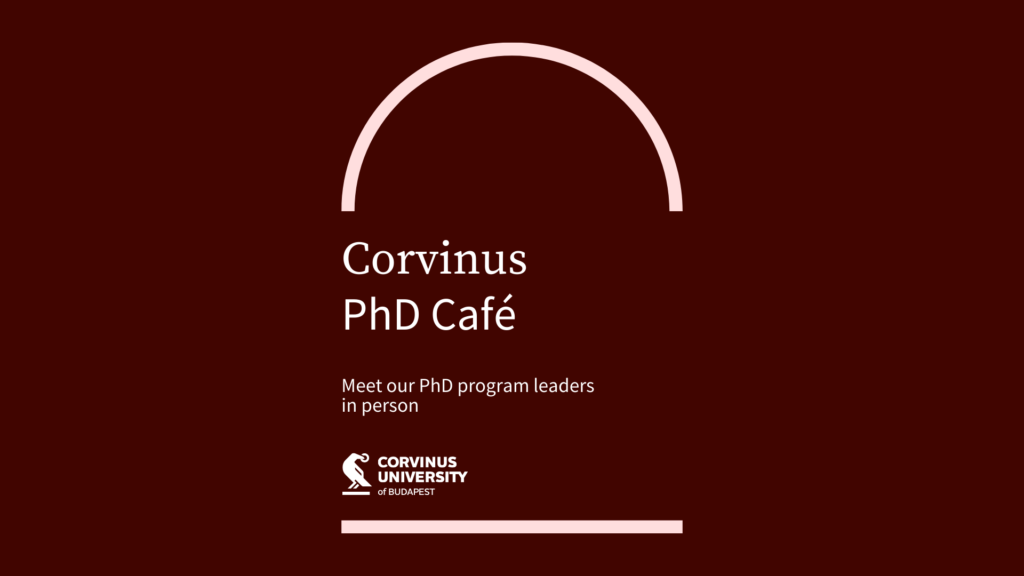
Corvinus Doctoral School’s Online Open Day 2025
Are you interested in a PhD? Do you have questions about admissions? Join our Online Open Day, where the heads of our doctoral schools will share their insights and we will answer your questions!
The aim of the doctoral programme is to function as a hub and a productive workshop for critical strategic thinking for those committed to the multidisciplinary study of International Relations and to supply the academic sphere both domestically and regionally with new generations of doctoral graduates. We are committed to help make the most of our candidates’ talents and to assist them in creating dissertation works of significant added value in their field. Our supervisors and instructors represent all of the major sub-fields of the multidisciplinary study of International Relations, including Political Science, International Relations, History of Diplomacy, International Law and Area/Regional Studies and can, accordingly, support a wide range of research projects in these areas and in their intersections. We provide adequate methodological grounding to programme participants. We are working to expand our network of international connections. Our domestic position in Hungary is, in one word, central: Corvinus University’s International and Security Studies doctoral programme is the alma mater of many a doctoral graduate currently teaching at other higher education institutions in the country. At the same time, our doctoral programme also welcomes representatives of the public service and corporate spheres who look to build on their accumulated professional experience in the framework of scholarly dissertation projects that may serve the aims of developing knowledge in their areas of expertise. We also have a good number of international participants, who add valued diversity to, and enrich, the overall knowledge capital of the doctoral school, as well as contribute to further expansion of the school’s network of contacts around the world.

Director of Doctoral Program

Head of Doctoral School

Are you interested in a PhD? Do you have questions about admissions? Join our Online Open Day, where the heads of our doctoral schools will share their insights and we will answer your questions!

Subscribe to our newsletter to automatically receive the latest information on further education and admissions!
Questions about the admission procedure are welcome at the e-mail address phd.office@uni-corvinus.hu.
• Supportive faculty
• International alumni
• Methodological support
• Great location in Central Europe/European Union
• Scholarship support available
Documents to be submitted:
• Research proposal (max. 8000 characters without literature, which should not exceed 10 items), including the research question, methodology, knowledge about the state of art and the relevance of the research, and its consistence with the research foci of the Doctoral School of International Relations and Political Science.
• Curriculum vitae, including previous research, awards, publications (if any), the title of the Master’s thesis, language proficiency. Applicants should write a paragraph about their motivation.
The final decision is made by the University Doctoral Council at the end of June.
Subscribe to our newsletter to automatically receive the latest information on further education and admissions!
Questions about the admission procedure are welcome at the e-mail address phd.office@uni-corvinus.hu.
E-mail: nkpdi-phd@uni-corvinus.hu
Please make an appointment by email before a personal consultation!

Director of Doctoral Program

Doctoral and Habilitation Procedures Expert

Head of Doctoral School

Doctoral Study and Administration Expert